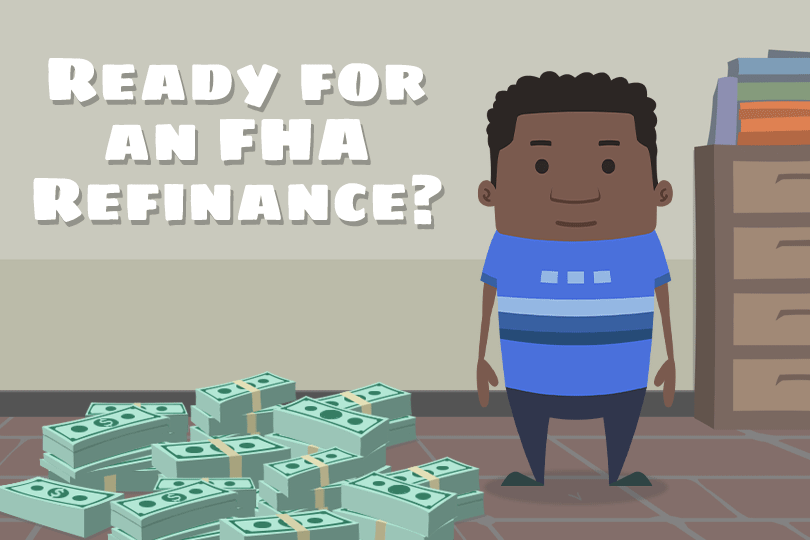When not to Consider Refinancing a Home
March 13, 2024
But there are other smart reasons not to refinance a home or to delay the decision until later. We examine some of the major ones below.
FHA Refinance Loans for Long-Term Homeowners
If you plan to refinance your home loan, you’ll need to save for the closing costs, origination fee, etc. One lender estimates the price of a refinance loan to be between 3% and 6% of the loan amount.
But does paying that fee make sense if you don’t plan to stay in the home for a long time? If you’re considering selling the property in the short term or even a bit longer down the road, you may do well to save the expense of a refinance loan in anticipation of not owning the home any longer.
If you plan to keep the house long-term, the math is different. How much do you save on a monthly mortgage payment by refinancing? Refinancing may make more sense if you aim to lower your monthly bills.
However, refinancing to save money throughout the loan in interest doesn’t work if you don’t stay in the house long term.
Refinance to Renovate?
If you need cash to improve a property, there are multiple FHA options to refinance. The numbers drive a decision to go with an FHA cash-out refinance or an FHA 203(k) rehab loan.
If you want to make standard improvements that don’t require work on load-bearing walls, you can use a smaller 203(k) rehab loan rather than fully refinancing your home with a cash-out loan to do so.
If you need to do extensive work covered under the 203(k) program, applying for a standard 203(k) refinance loan may be wise.
Why? Because an FHA cash-out refinance is limited to 80% of the home's value. A 203(k) rehab refinance loan offers an LTV of “110 percent of the After Improved Value (100 percent for condominiums)” or the appropriate area loan limit according to HUD 4000.1, the FHA Single-Family Lender’s Handbook.
Don’t Refinance to Cover Credit Card Debt
Why give this advice specifically to those who want to apply for an FHA cash-out refinance loan to pay off credit card bills? Because using credit to pay off revolving credit can lead to the borrower running up the same accounts again later, canceling out the first credit card payoff.
It’s better to pay off debt that won’t recur if you do so with an FHA cash-out refi.
------------------------------
RELATED VIDEOS:
Don't Skip the Home Inspection
Bigger is Better With a Jumbo Loan
Insuring Mortgages With the FHA Funding Fee

FHA Loan Articles
November 4, 2023In May 2023, USA Today published some facts and figures about the state of the housing market in America. If you are weighing your options for an FHA mortgage and trying to decide if it’s cheaper to buy or rent, your zip code may have a lot to do with the answers you get.
October 14, 2023FHA loan limits serve as a crucial mechanism to balance financial sustainability, regional variations in housing costs, and the agency's mission to promote homeownership, particularly for those with limited financial resources.
September 25, 2023Mortgage rates are hitting prospective homeowners hard this year and are approaching 8%, a rate that didn't seem very likely last winter. With so many people priced out of the market by the combination of high rates and a dwindling supply of homes.
September 19, 2023The FHA Handbook serves as a crucial resource for mortgage lenders, appraisers, underwriters, and other professionals involved in the origination and servicing of FHA-insured home loans. It outlines the policies and requirements for FHA-insured mortgages.
September 13, 2023FHA rehab loans are a specialized type of mortgage loan offered by the Federal Housing Administration that allows borrowers to finance both the purchase or refinance of a home and the cost of needed repairs.







